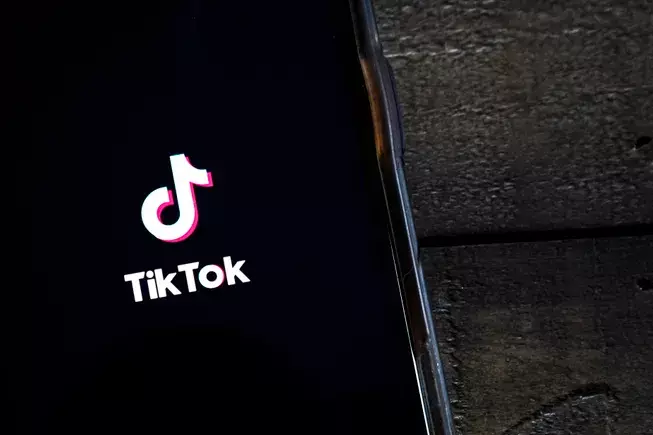As of Saturday afternoon, TikTok users in the U.S. received alarming notifications about the app’s impending unavailability due to a controversial legislative move initiated by the government. This marks a pivotal moment where the fate of social media platforms is entangled in political and legal webs. The news comes as TikTok attempts to navigate a labyrinth of compliance and potential discontinuation, raising critical questions about the implications for users, content creators, and the broader digital landscape.
The root of the current predicament lies in the U.S. government’s decision to invoke the “Protecting Americans from Foreign Adversary Controlled Applications Act.” This law, upheld by a recent Supreme Court ruling, places TikTok’s operations in a precarious position, requiring it to either sell to an American entity or cease functioning altogether. TikTok had hoped to challenge this legislative move in court, but the timeline is unforgiving. With the stipulated regulations set to take effect at midnight, the inevitability of a shutdown looms large unless a resolution is reached in the immediate future.
The implications are far-reaching. TikTok’s Chinese ownership has long been a contentious issue in U.S. politics, tied closely to concerns regarding national security and data privacy. The Biden administration, while initially hesitant to proceed with the ban proposed by the previous Trump administration, found itself backed into a corner, resulting in the implementation of the law. This shift underlines the complex interplay between technology, legislation, and international relations, illustrating how apps like TikTok can become pawns in broader geopolitical disputes.
As the clock ticks down, speculation arises about how the incoming administration, headed by Donald Trump, may influence TikTok’s future. Trump, who previously sought to ban the platform due to its origins in China, now appears poised to leverage his position to renegotiate terms that could keep TikTok operational in the U.S. This abrupt shift in stance raises eyebrows, as Trump has reportedly developed a significant following on the platform itself.
However, any strategic intervention by Trump seems improbable before his official swearing-in ceremony. While he has suggested a temporary reprieve might be on the horizon, the constraints of the law leave little room for immediate action. The question remains as to how the incoming administration will harmonize national security concerns with the demands of a lucrative social media ecosystem that opens avenues for economic opportunity and expression.
For content creators and businesses reliant on TikTok, the temporary shutdown presents a troubling dilemma. Influencer marketing strategies could be upended, and many creators who have cultivated their audiences over years face an uncertain future. These professionals have relied on TikTok not just as a platform for creativity but as a vital source of income and brand partnerships. The short-term loss of the app could lead to significant financial ramifications and loss of audience engagement which are crucial in a highly competitive digital landscape.
Moreover, the potential return of TikTok under new management or conditions may not guarantee a seamless transition. Creators and businesses may need to reassess their marketing strategies and adapt to any changes in the platform’s structure or rules that could accompany a new ownership model. In an environment where social media platforms frequently evolve, maintaining a flexible and responsive approach to these shifts is crucial for ongoing success.
Despite current uncertainties, it seems probable that TikTok will return to American app stores in the near future, thanks to Trump’s pledge to possibly reinstate the app post-inauguration. However, this scenario relies on the successful negotiation of complicated legal and political frameworks, where bipartisan agreement remains uncertain. Observers will be watching closely to see how the new administration navigates this landscape, balancing national security interests with the demands of a digitally interconnected populace who are deeply invested in the platform.
As TikTok and its stakeholders move through this tumultuous phase, the key takeaway for users and creators is resilience. The inevitability of change in the digital space necessitates an adaptable mindset and a willingness to pivot in response to unfolding scenarios. While the path ahead may be fraught with challenges, there is an underlying current of hope that TikTok and similar platforms will find a way to operate effectively, ensuring creators maintain their voices in an ever-evolving digital world. In the interim, all eyes will be on the new administration as they attempt to strike a balance between maintaining national interests and nurturing a vibrant digital economy.


Leave a Reply